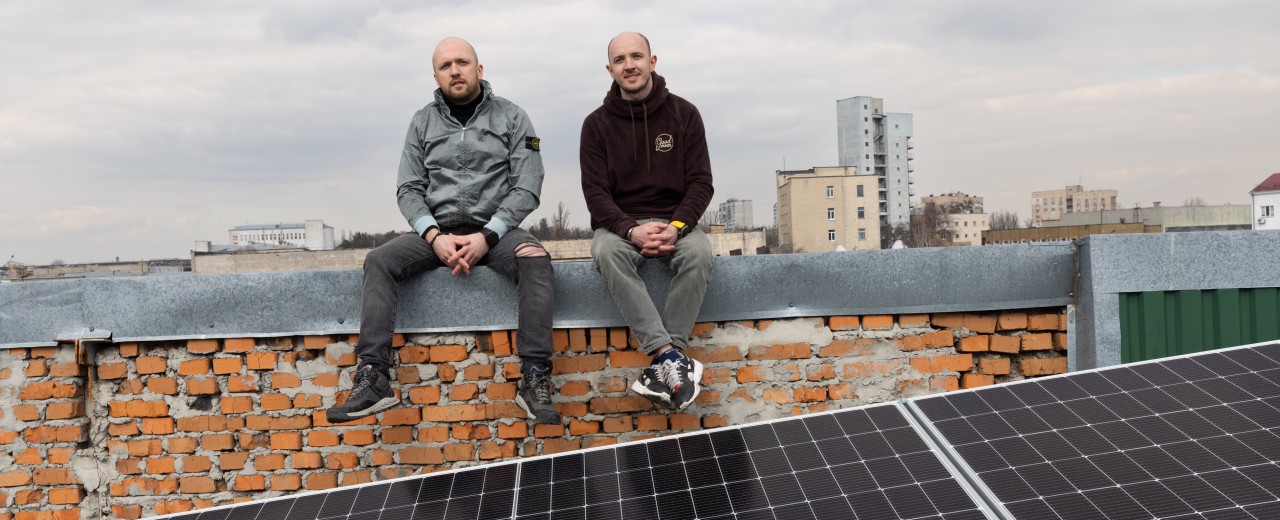Tip: Activate javascript to be able to use all functions of our website

Goodevas in Kyiv produces children’s toys – and the company is good at it. It exports climbing frames, swings, seesaws and much more all over the world. Goodevas has found its niche: founded not long ago in 2017, the company specialises in manufacturing Montessori toys. These toys follow the Montessori philosophy and are intended to appeal to all children's senses, enabling them to learn by playing. One third of Goodeva’s production is sold in Germany, with the company managing its own warehouse in Berlin. The Ukrainian company’s toys are also very popular in the USA, Canada and the United Kingdom.
The two founders, Oleks and Oleks, are parents themselves and, in addition to their business activities, have one main goal: they want to make children happy. Quality and beauty are important to them, as is the ongoing development of in their own words “new, exciting products”, as they say. Based on this concept, they have created a flourishing business within just a few short years.
The outbreak of war put a dampener on the company's upward trajectory. In the first few months the electricity supply was very unstable, compelling the company to work with generators and cut back on production. In order to become more energy independent, the two founders decided to install a solar panel system on the roof. They received support for this through the promotional programme “Affordable Loans 5-7-9” of the Ukranian Buisness Development Fund. The system has an output of 70 kWh, which is sufficient to meet the company’s needs in good weather. It produces around 13 to 15 MW per month. “It's fantastic, as you can save a lot of electricity,” explains Goodeva’s technical manager, Vladislav. In addition, the system contributes to energy security, which is essential in times of war.
The acquisition was worthwhile, and the initial difficulties have since been overcome. Remarkably, the company has now doubled its turnover compared to its pre-war takings.
The BDF's state-run „Affordable Loans 5-7-9“ programme has been supported by KfW with EUR 200 million since the beginning of the war. The largest government financing program for SMEs to date gives companies access to financial services. The subsidy program reduces the market interest rate for companies from about 25 to 28 % per year to 5 %, 7 % or 9 % per year, depending on the number of jobs created and the size of the company. With the beginning of the Russian aggression in February 2022, the need for support for SMEs increased enormously once again. The "5-7-9" program cushioned rising interest rates; grocery stores, small logistics companies and agricultural businesses were able to maintain their operations as a result.
Share page
To share the content of this page with your network, click on one of the icons below.
Note on data protection: When you share content, your personal data is transferred to the selected network.
Data protection
Alternatively, you can also copy the short link: https://www.kfw-entwicklungsbank.de/s/enzB0BAh
Copy link Link copied